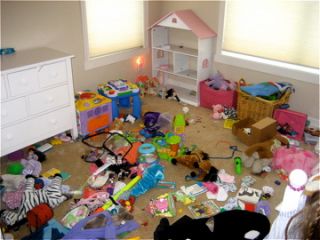
Self-Esteem
Boost Your Self-esteem by Being Less Destructive
Choose being constructive.
Posted May 24, 2013
Humans are destructive. Man's inhumanity to man is demonstrated daily. We kill plants and animals. We say cruel and insensitive things. Collectively, we are destroying our planet.

While the natural destructiveness of little children is relatively inconsequential and sometimes amusing, destructiveness in older children and adults is not generally viewed favorably. While we tend to minimize or justify our own destructive behavior, we view destructive behavior in others as the result of low-self-esteem, anger management problems, or emotional immaturity.


Comparing yourself out
"Well," you may say, "that could be true but I'm pretty sure I'm not as destructive as most people. I recycle, and I never post anything mean on Facebook." In 12-step programs, this is called "comparing yourself out."
A more promising attitude, regardless of how one compares to others, is a "zero tolerance policy." As Julia Seton wrote in 1914:
"We have no more right to put our discordant state of mind into the lives of those around us and rob them of their sunshine and brightness than we have to enter their houses and steal their silverware."1
Boosting your self-esteem
Reining in destructive behavior boosts self-esteem - your reputation with yourself. It is never too late in life to start redirecting yourself to constructive thoughts and behaviors.
1) Recognize destructiveness of first reactions. Negative emotions - anger, jealousy, envy, fear - are likely to inspire destructive behaviors. Yes, it's only human to react destructively, but there's still no excuse for it.
2) Take command of destructive impulses. Our brains are equipped to inhibit negative emotions, and the more we practice doing so, the better we get at it. See previous posts: How to Train Your Dragon and Runnin' with Your Hair Blowin' Back?
3) Activate the placebo (Latin for "I shall please") effect. A constructive mindset creates positive expectations, activating the placebo effect. Maintaining positive expectations increases brain activity in areas critical to constructive behavior.2
4) Choose constructive behaviors. Practice restraint and integrity. Rein in destructiveness. At every decision point, counter natural destructiveness with constructive action.
Sounds like a lot of effort?
Yes, it takes effort on the front end of a situation to redirect destructiveness. Think, though, about all the energy you'll save on the back end. No messes to clean up. No apologies to make. No lingering consequences and complications. And the benefits to personal happiness and self-esteem and to harmony in relationships are worth the effort.
1) Julia Seton, The Science of Success (Whitefish, MT: Kessinger Publishing, 1997).
2) Louis Cozolino, The Neuroscience of Psychotherapy, 2nd Ed. (New York: W.W. Norton & Co., Inc., 2010), 336-339.

